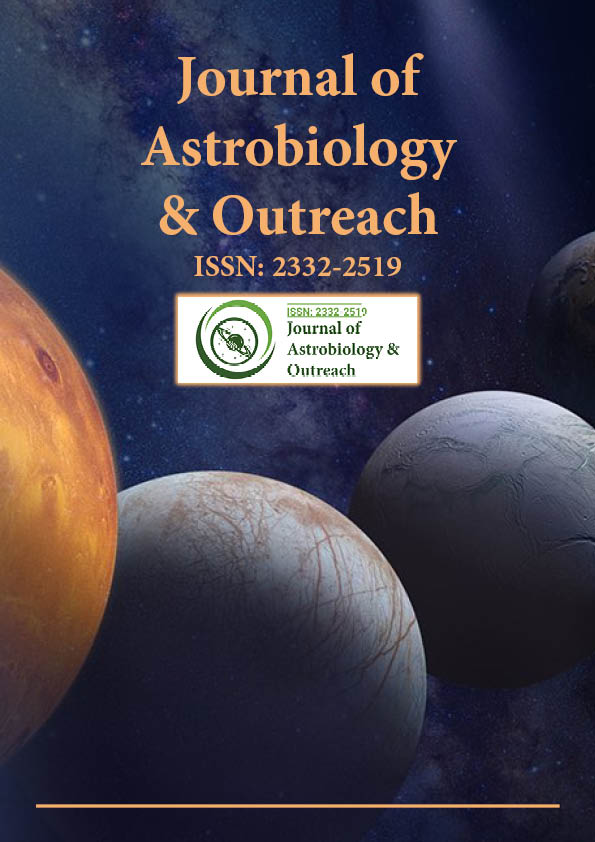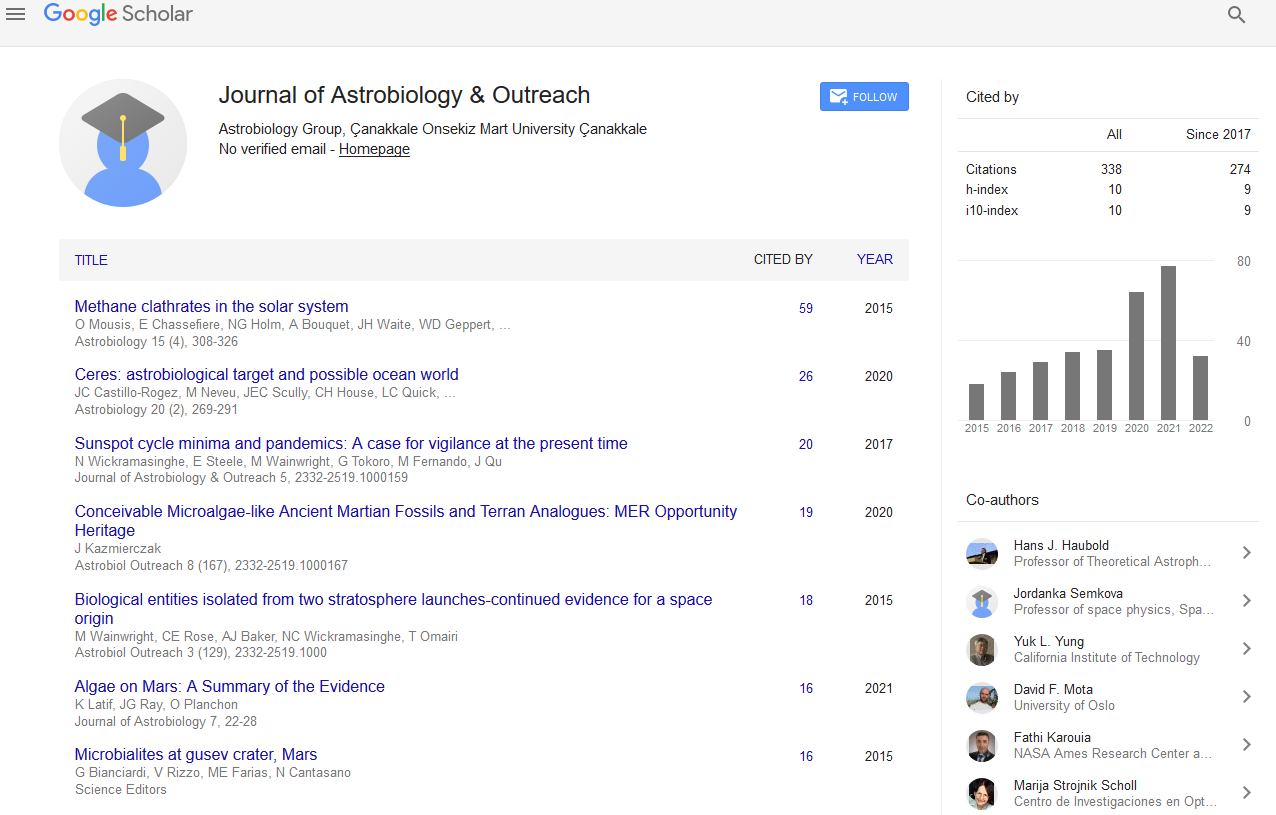Indexed In
- Open J Gate
- Academic Keys
- JournalTOCs
- RefSeek
- Hamdard University
- EBSCO A-Z
- OCLC- WorldCat
- Google Scholar
Useful Links
Share This Page
Journal Flyer

Open Access Journals
- Agri and Aquaculture
- Biochemistry
- Bioinformatics & Systems Biology
- Business & Management
- Chemistry
- Clinical Sciences
- Engineering
- Food & Nutrition
- General Science
- Genetics & Molecular Biology
- Immunology & Microbiology
- Medical Sciences
- Neuroscience & Psychology
- Nursing & Health Care
- Pharmaceutical Sciences
Abstract
The Nuclear Compartment Commonality Hypothesis, Enucleation and the Evolution of the Bacteria and Eukarya
James T Staley
The nuclear compartment commonality (NuCom) hypothesis posits that the Bacteria Domain and Eukarya- Archaea Domains share a major commonality in the process of DNA replication. The ancestors of both types of organisms used a similar or perhaps identical nuclear envelope platform and nuclear compartment to carry out DNA replication. The effects of this are still seen in the Bacteria and Eukarya all of which have retained membranes with ester-linked, fatty acid lipids. These genes were lost in a process of reductive evolution, termed Enucleation, resulting in the formation of the Archaea from the Eukarya. Some of the nucleated Bacterial phyla such as the Planctomycetes and Verrucomicrobia likely underwent Enucleation giving rise to the more typical Bacterial phyla that lack nuclei. For example, the Verrucomicrobia may be ancestral to the Proteobacteria. The NuCom hypothesis also provides an alternative explanation to opposing views regarding the importance of the Bacteria in the evolution of the Eukarya, namely that these two Domains share a hereditary commonality in their original nuclear envelopes.

